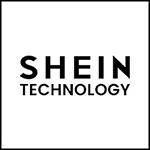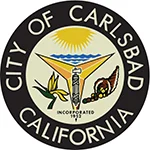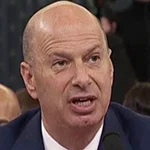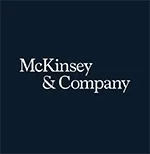Twitter has retained D.C.-based government relations shop Integrated Solutions Group in response to a recently introduced bill that could fundamentally change how paid political advertising is regulated on social media sites.
In October, Senators Mark Warner (D-VA), Amy Klobuchar (D-MN) and John McCain (R-AZ) unveiled S. 1989, or the “Honest Ads Act.” That bipartisan piece of legislation aims to enhance transparency and accountability for online political ads by establishing a framework similar to endorsement rules governing TV, radio and print ad campaigns, thereby making it more difficult for foreign actors to use social media sites to influence U.S. politics.
Among other provisions, the “Honest Ads Act” would require Internet platforms such as Google, Facebook and Twitter to disclose in a public database the names of persons or groups that purchase political ads exceeding $500.
The proposed legislation comes as U.S. officials continue unraveling the prolific extent to which Russia used political ads placed across social media platforms in an effort to spread disinformation and foment dissent in the months leading up to the 2016 presidential election.
 |
Officials at Twitter, along with Facebook and Google, testified at Congressional hearings in October and November convened for the purpose of examining Russia’s role in last year's election. Facebook admitted that as many as 126 million people in the U.S. may have been exposed to Russian propaganda in the form of posts over its platform, including $100,000 spent by Saint Petersburg-based troll farm the Internet Research Agency. Google said it had uncovered about $4,700 worth of Russia-linked ads across its YouTube, Gmail and search platforms, and Twitter said it discovered more than 2,700 accounts tied to Kremlin-backed organizations, far more than the company had initially estimated.
In light of the bombshell news that Russia had paid for political ads in the U.S. in a bid to sway the 2016 election, the San Francisco-based micro-blogging platform recently banned Russian government-funded television news network RT from advertising on the site, and has also since released a report detailing automated tweet activity that originated from Russian accounts.
While social media leaders have publicly pledged to improve how political advertising is handled on their platforms as well as expressed agreement in fostering increasingly transparency environments, their response to lawmakers’ recent attempts to legislate online political ads thus far can be best characterized as tepid.
Web lobbying organization the Internet Association on Oct. 31 published its own eight-point set of internal guidelines in response to the “Honest Ads Act,” detailing steps they believe member companies can take in lieu of federal legislation to prevent foreign agent interference “while also protecting privacy, legitimate free speech and political debate online.”
The D.C.-based trade group, whose members include Amazon, Airbnb, eBay, Expedia, Facebook, Google and LinkedIn, PayPal, Twitter and many others, suggested that “legislation or regulation should improve transparency and disclosure of online election advertising without creating requirements that would discourage legitimate stakeholders from actively engaging in the political process or limit political speech.”
While the lobbying group agrees that “legislation or regulation should require all ad platforms to disclose information publicly about the political ads they carry,” it also believes that such legislation “needs to protect people’s privacy,” and “while certain types of information could be made accessible to the FEC for investigative purposes,” legislation shouldn’t require that “personal information about individuals who purchase advertising be disclosed publicly.”
The Twitter account will be managed by TIA principal Moses Boyd, who was formerly consumer affairs counsel to the Senate Commerce Committee; and G. John O’Hanlon, who was previously an aid to Richard A. Gephardt as well as a finance director for the Democratic National Committee.


 Missy Edwards Strategies represents Shein Technology Group, the Los Angeles arm of the embattled Singapore-based “instant fashion” retailer.
Missy Edwards Strategies represents Shein Technology Group, the Los Angeles arm of the embattled Singapore-based “instant fashion” retailer. Carlsbad, a north San Diego County city of 115K people, is looking for a firm to provide government relations and Sacramento lobbying services.
Carlsbad, a north San Diego County city of 115K people, is looking for a firm to provide government relations and Sacramento lobbying services. Gordon Sondland, who was US ambassador to the European Union under Donald Trump, has registered as a representative of Ukraine’s cabinet and ministers.
Gordon Sondland, who was US ambassador to the European Union under Donald Trump, has registered as a representative of Ukraine’s cabinet and ministers. The Daschle Group is representing Santa Monica-based Stand with Hong Kong Action, an advocacy group that fights to end Chinese repression in Hong Kong.
The Daschle Group is representing Santa Monica-based Stand with Hong Kong Action, an advocacy group that fights to end Chinese repression in Hong Kong. McKinsey & Co. has reached out to Republican shop Harbinger Strategies to educate policymakers about the activities of the embattled management consultancy.
McKinsey & Co. has reached out to Republican shop Harbinger Strategies to educate policymakers about the activities of the embattled management consultancy.


 Have a comment? Send it to
Have a comment? Send it to 
No comments have been submitted for this story yet.